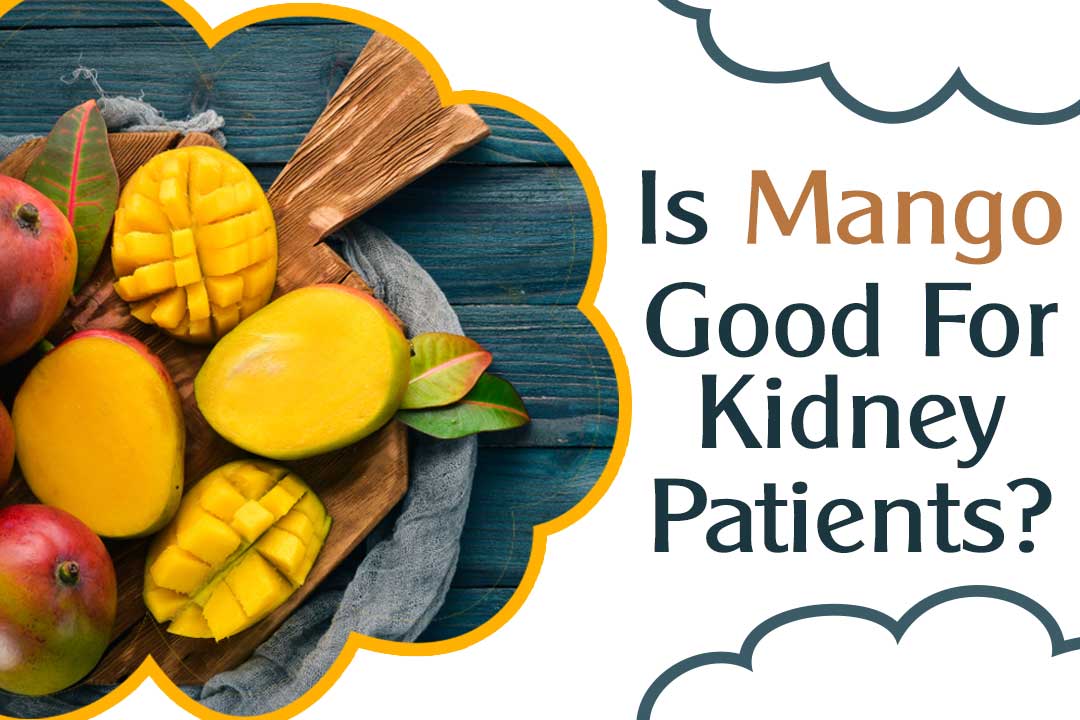
Mango, the king of fruits, the sunshine in a bowl, and quite possibly one of the most delicious things nature has to offer. Whether it’s sliced fresh, blended into a smoothie, or enjoyed as part of a summer salad, mango is a beloved favorite across the globe. But if you're living with kidney issues, especially chronic kidney disease (CKD), you might be wondering: Is Mango good for kidney patients? Or should I steer clear?
It's a valid question. When you’re dealing with kidney concerns, your diet becomes more than just food choices; it becomes medicine. Let’s break it down together, explore how mango fits into a kidney-friendly diet, and figure out if this sweet delight gets the green light or a cautious pause.
When your kidneys aren’t working at full capacity, they struggle to remove waste and excess nutrients, like potassium, phosphorus, and sodium, from the body. That means certain foods, even healthy ones, can turn into troublemakers if they’re too high in those nutrients.
So, the golden rule of a kidney-friendly diet? Keep it balanced, keep an eye on certain minerals, and always listen to your body (and your doctor, of course).
Before we jump to conclusions, let’s look at what’s actually in a mango. One cup of sliced mango (about 165 grams) contains:
On paper, mango seems like a nutritious, low-phosphorus fruit with moderate potassium. But as always, the dose makes the poison, or in this case, the sweetness makes the situation a little trickier.
Potassium is an essential mineral. It helps with muscle function, nerve signaling, and maintaining a healthy heartbeat. But for people with kidney disease, potassium levels can get dangerously high if the kidneys can't filter it out efficiently.
Mango has moderate potassium, which means it’s not off-limits, but portion control is key. If your potassium levels are already high (which a blood test can show), eating a large bowl of mango might not be the best idea.
But if your potassium is in check and you’re in the early stages of CKD or managing things well? A few mango slices can still be part of your life; sweet relief!
Let’s talk sugar. Mango is naturally sweet, and that’s both its magic and its nutritional warning light.
One medium mango contains about 45 grams of sugar. For someone watching their blood sugar due to diabetes (which often goes hand-in-hand with kidney disease), that’s quite a bit. Kidney treatment in Ayurveda always advises renal patients to keep blood sugar in check.
However, unlike processed sugar, the natural sugars in mangoes come with fiber, antioxidants, and vitamins that help slow down sugar absorption. The key here? Again, the usual suspect: moderation. Pair your mango with some protein (like a small handful of nuts or plain Greek yogurt) to help balance the sugar spike.
If you follow Ayurveda, you’ll be happy to know that mango has a respected place in traditional healing. It’s considered sheetal (cooling in nature), nourishing, and tridoshic when consumed in moderation, meaning it can balance all three doshas: Vata, Pitta, and Kapha.
From an Ayurvedic perspective, ripe mango helps build ojas, the body’s vital energy, which is often depleted in chronic conditions like CKD. Mango is also believed to support digestion and improve strength when taken properly (think: ripe, seasonal, and ideally with a dash of cardamom or a few drops of ghee to aid digestion).
However, Ayurveda also emphasizes the uniqueness of each body. What suits one person may not suit another, especially if toxins (ama) are present or digestion is weak. So, as always, it's about balance and listening to your body's needs.
So, let’s say you’re a mango lover and you’re not ready to say goodbye. Good news: you don’t have to. Here are a few tips to enjoy mango wisely:
There are situations where mango might not be ideal. If you’re in advanced stages of kidney disease, especially Stage 4 or 5, your potassium tolerance may be very limited. In those cases, even moderately high-potassium fruits like mango may be too much.
Also, if you’re on dialysis, your diet is likely much stricter and more closely monitored. Always check with your renal dietitian before adding mango or any fruit to your plan.
Here’s the bottom line: Yes, mango can be part of a kidney-friendly diet, if it’s eaten in moderation and if your potassium and sugar levels are under control.
It’s packed with vitamins, fiber, and antioxidants that can nourish the body, lift your spirits, and even support your digestive health. But like all good things, it needs to be enjoyed mindfully.
If your doctor or dietitian gives you the go-ahead, there’s no reason you can’t savor a few bites of mango during mango season. Life’s too short not to enjoy your favorite fruit, especially when enjoyed wisely.
Living with kidney disease doesn’t mean you have to live without flavor or joy. With a bit of planning and smart choices, you can still enjoy many of the foods you love, including mango.
Remember, your diet isn’t just about restrictions; it’s about learning what works best for your body and making choices that nourish you on every level. So, go ahead and savor that slice of mango. Just maybe not the whole fruit in one go.
And as always, when in doubt, check with your healthcare provider. They’ll help you find that sweet spot — literally and figuratively.

Certificate no- AH-2023-0186
JAN 05,2023-JAN 04,2026
"Ayurveda is not just a system of medicine; it's a way of life. Connect with us to embrace a lifestyle that nurtures your body, mind, and soul."
Book Consultation Now